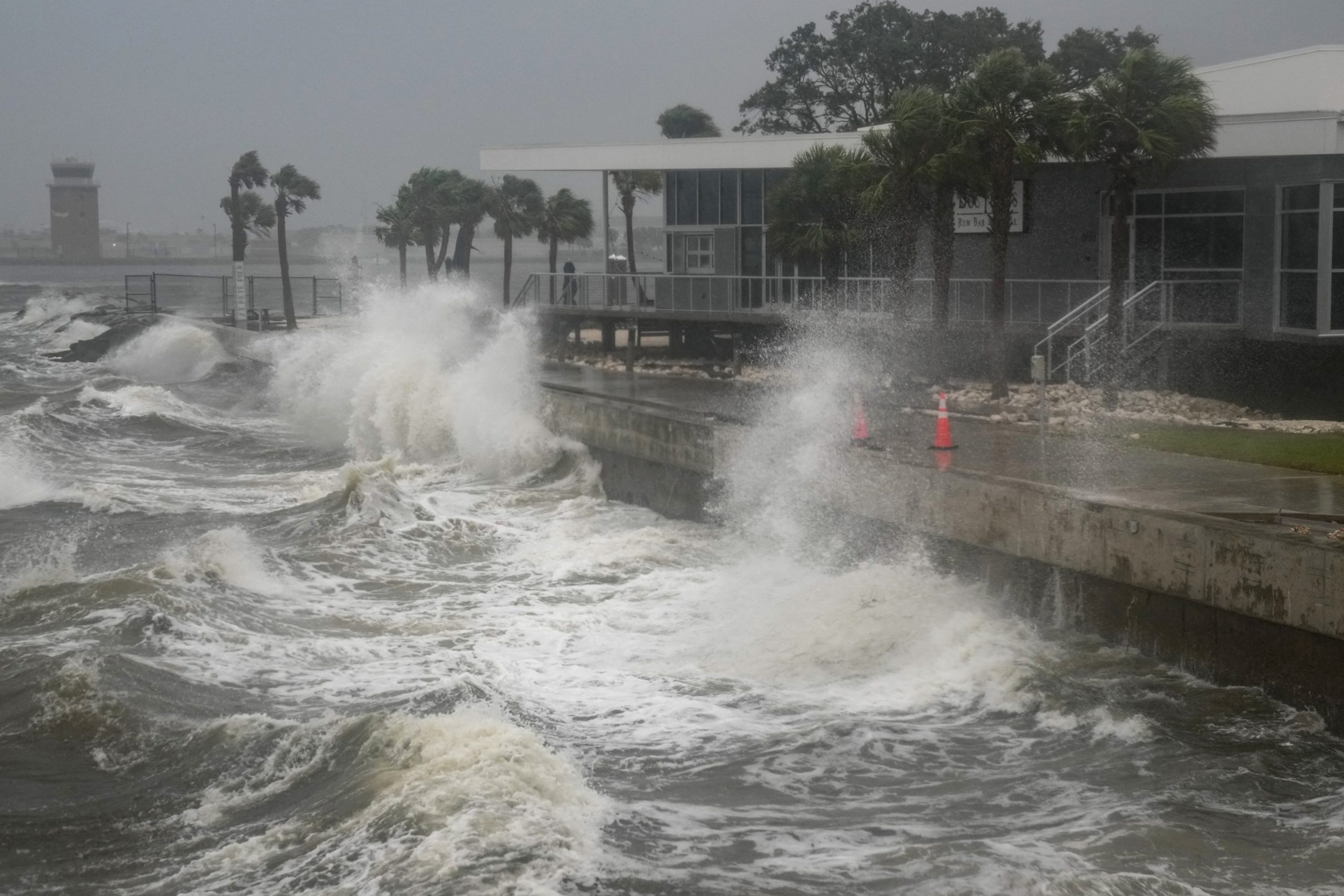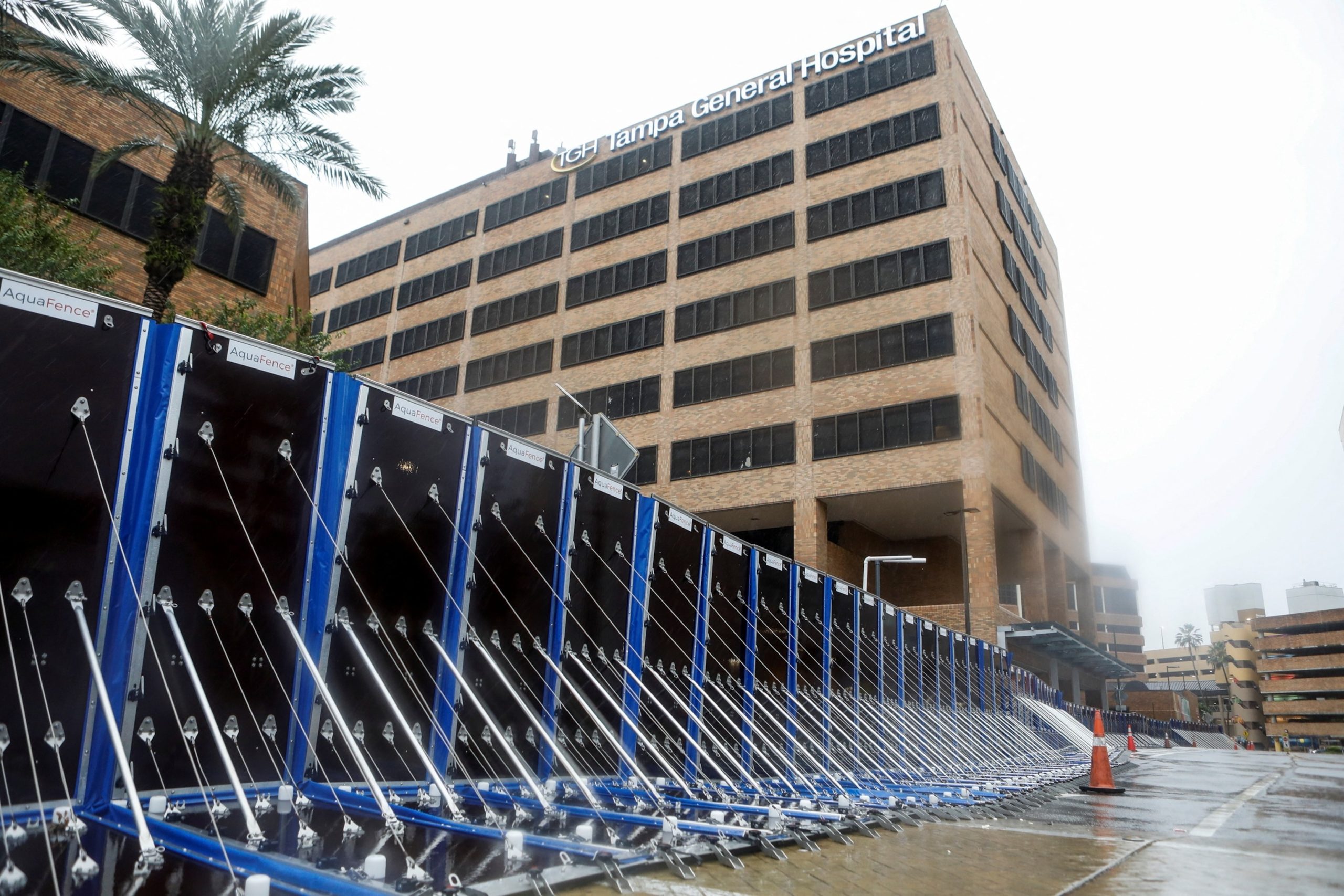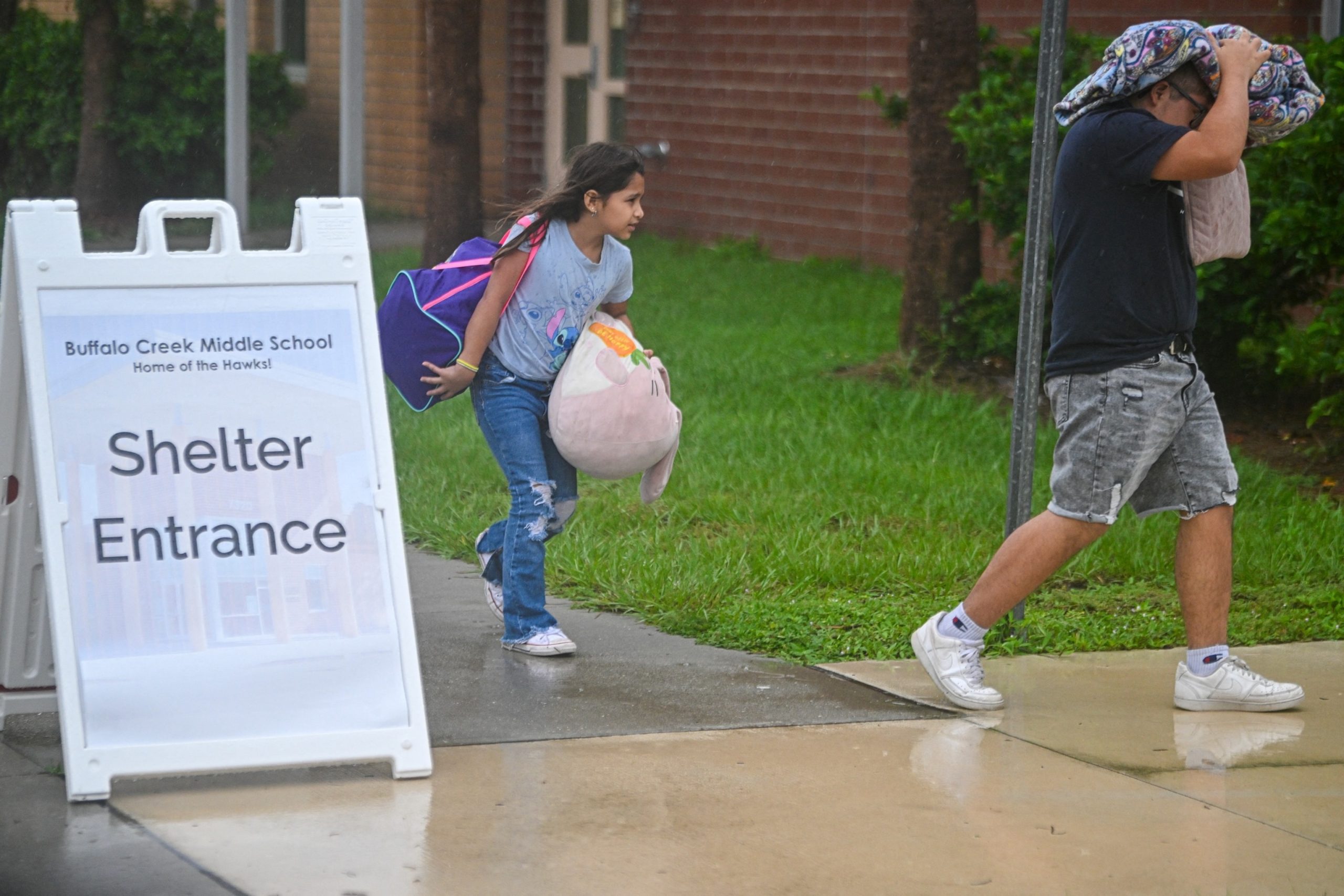While it’s still hours away from making landfall and has yet to cause any damage, Hurricane Milton is already rewriting the record books, officials said.
“I think for the west-central coast of Florida, this has the potential to be the most impactful hurricane we’ve seen in living memory, given the scope of the impacts from the storm surge,” Mike Brennan, director of the National Hurricane Center, told ABC News.
Milton is forecast to make landfall between 9 p.m. and 11 p.m. ET Wednesday near Sarasota as a Category 3 hurricane with wind gusts of over 100 mph. On Wednesday afternoon, Milton was a Category 4 hurricane in the Gulf of Mexico about 150 miles southwest of Tampa, and moving toward Florida’s west coast at 16 mph.
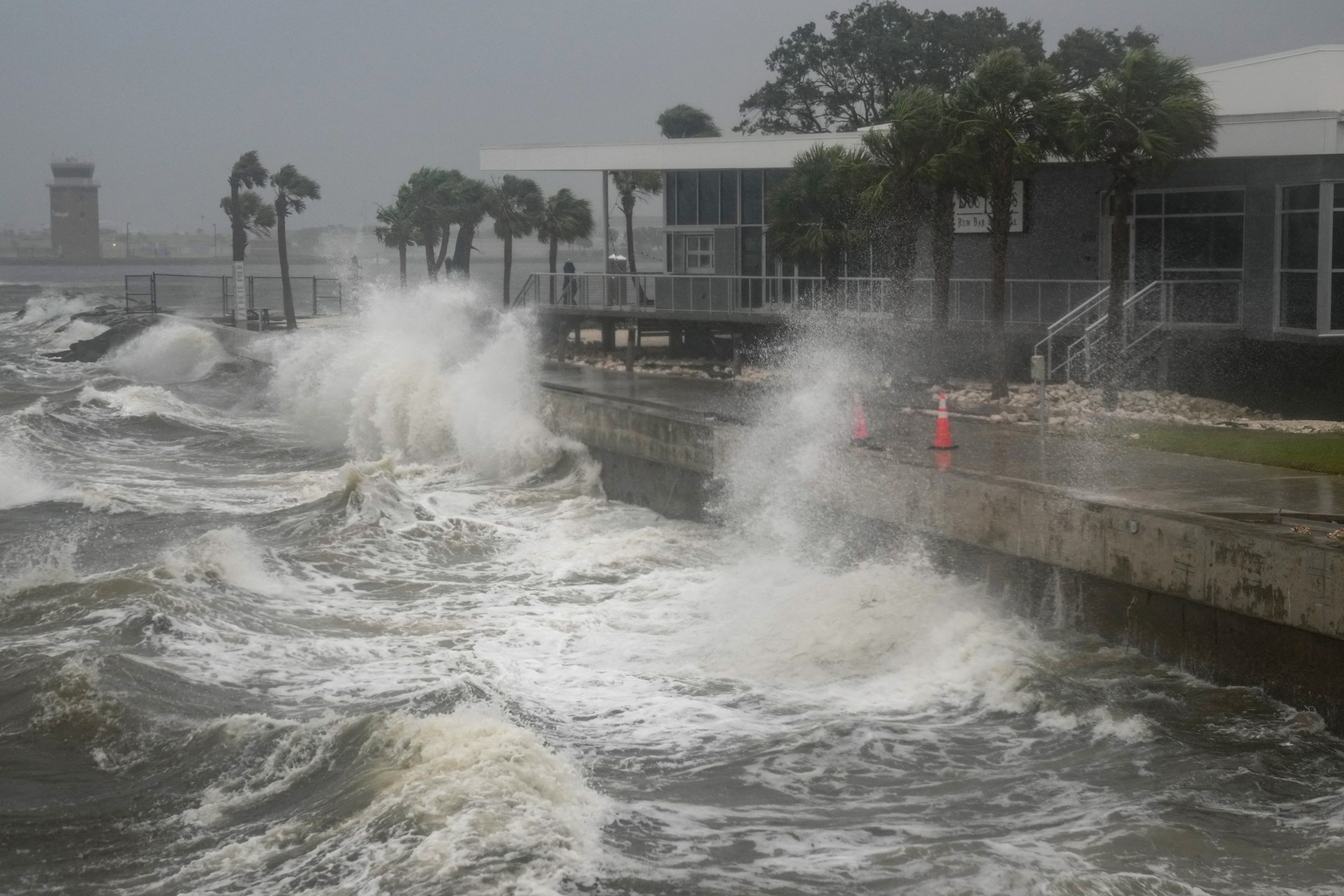
Waves crash along St. Pete Pier in St. Petersburg, Florida, as Hurricane Milton is expected to make landfall tonight, Oct. 9, 2024.
Bryan R. Smith/AFP via Getty Images
Once it makes landfall, the hurricane is expected to create a 10-to-15-foot storm surge in Sarasota and a storm surge of 8-to-12 feet from Tampa down to Fort Myers.
But the storm, the ninth hurricane of the 2024 Atlantic hurricane season, has already made an impact on the record books.
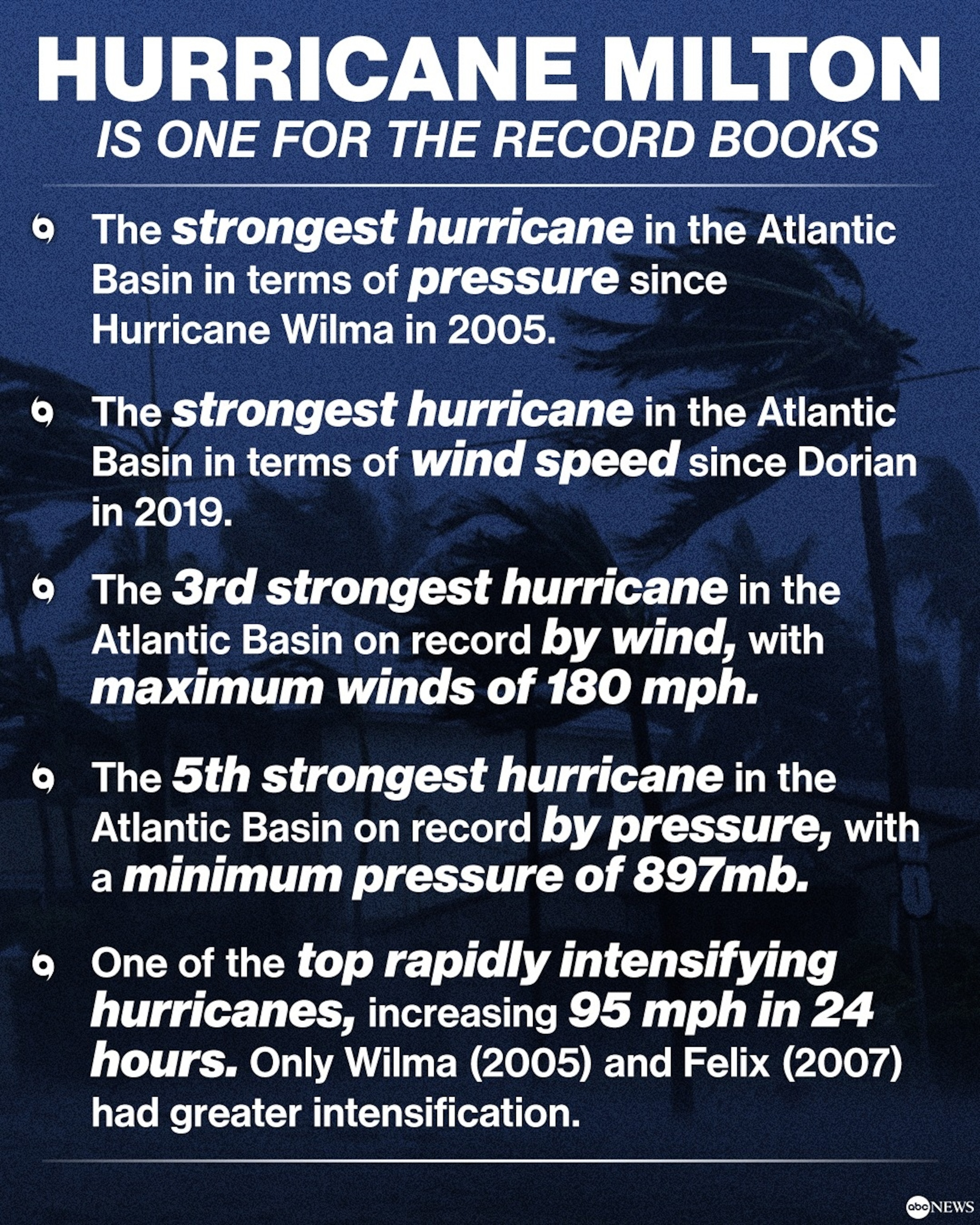
Hurricane Milton is one for the record books
ABC News, Adobe stock
Milton is the strongest hurricane in the Atlantic Basin in terms of pressure since Hurricane Wilma, which hit Florida in 2005. The storm is also the strongest hurricane in the Atlantic Basin in terms of windspeed since Hurricane Dorian in 2019.
On Monday, Milton was producing maximum winds of 180 mph, making it the third strongest hurricane in the Atlantic Basin on record in terms of wind.
According to the National Hurricane Center records, Milton is one of the top rapidly intensifying hurricanes after increasing 95 mph in 24 hours this week. Only hurricanes Wilma and 2007’s Felix had a greater intensification, according to the records.
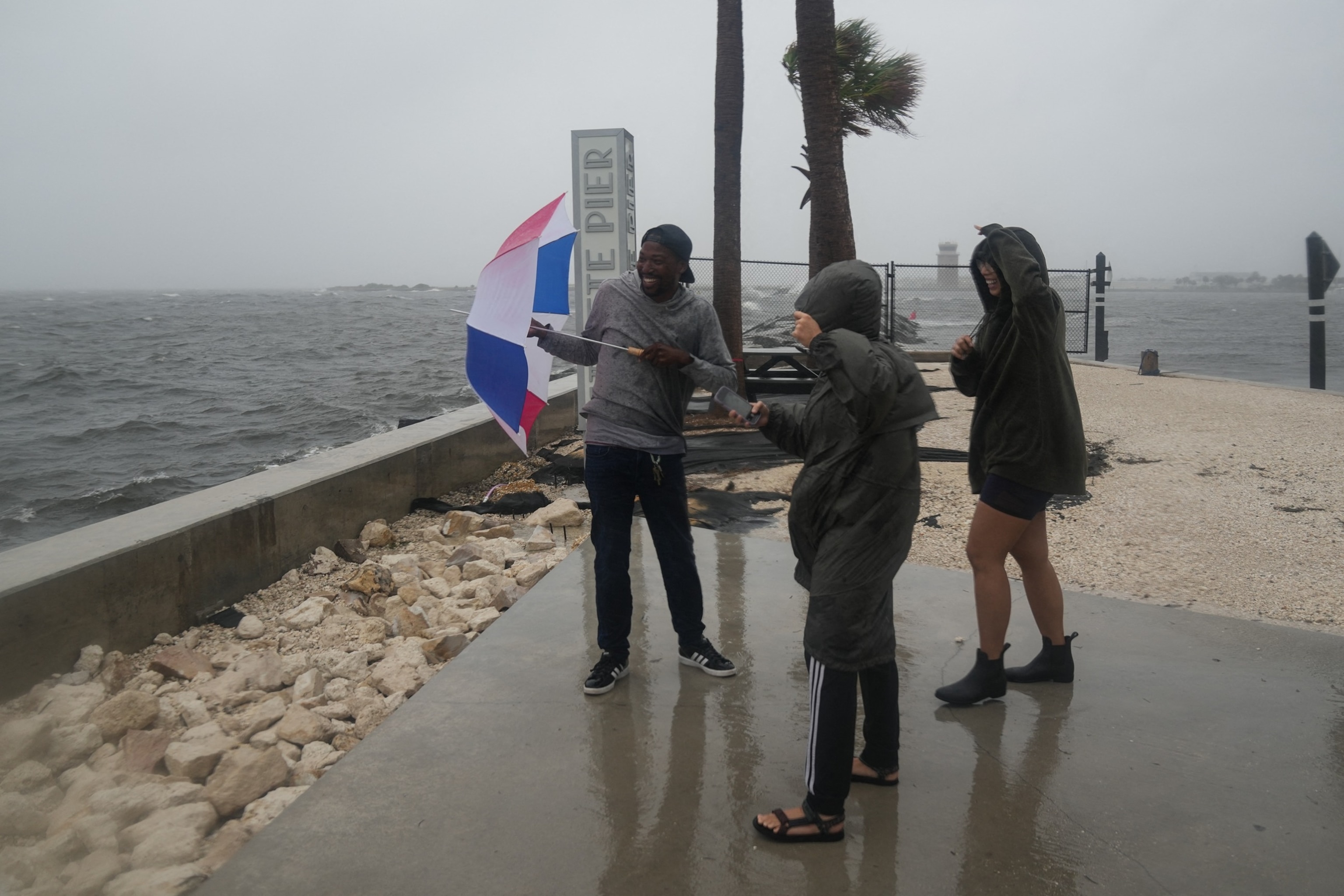
Jeremy Beal, Micaela Robertson and Alex Quintos react as waves crash along St. Pete Pier in St. Petersburg, Florida, as Hurricane Milton is expected to make landfall tonight, Oct. 9, 2024.
Bryan R. Smith/AFP via Getty Images
Milton is also the fifth strongest hurricane in the Atlantic Basin on record by pressure.
Brennan said Milton is a different beast from other hurricanes due to its “unusual” track.
“Often we see hurricanes approach Florida from the east or the southeast,” Brennan said. “But this track is somewhat unusual and is really a worst-case scenario for these very storm-sensitive areas along the west coast of Florida because the circulation of Milton is going to be pushing that Gulf of Mexico water right up onto dry land here in these vulnerable places.”
As Hurricane Milton continues to make its way through the Atlantic Ocean, meteorologists are closely monitoring its path and impact on surrounding areas. With wind speeds reaching up to 150 miles per hour, Milton has quickly become one of the most powerful hurricanes of the season, breaking records for its intensity and destructive potential.
The storm first formed as a tropical depression off the coast of Africa, quickly gaining strength as it moved westward towards the Caribbean. As it approached the Lesser Antilles, Milton rapidly intensified into a Category 4 hurricane, causing widespread panic and evacuation orders in its path.
One of the most concerning aspects of Hurricane Milton is its slow-moving nature, which has allowed it to linger over certain areas for an extended period of time, causing prolonged periods of heavy rainfall and flooding. This has led to widespread damage to infrastructure, homes, and businesses, leaving many communities in a state of emergency.
In addition to the immediate impact of the storm, meteorologists are also concerned about the potential for long-term effects on the environment and economy. The destruction caused by Hurricane Milton could have lasting consequences for agriculture, tourism, and local ecosystems, leading to significant economic losses for affected regions.
As the storm continues to move towards the United States, residents along the East Coast are being urged to prepare for potential landfall and take necessary precautions to ensure their safety. With hurricane season in full swing, it is important for individuals to stay informed and heed warnings from local authorities to minimize the impact of severe weather events like Hurricane Milton.
Overall, Hurricane Milton serves as a stark reminder of the power and unpredictability of nature, highlighting the importance of preparedness and resilience in the face of extreme weather events. As communities continue to assess and recover from the storm’s impact, it is crucial for individuals and governments to work together to mitigate future risks and build more resilient infrastructure to withstand the challenges of climate change.
